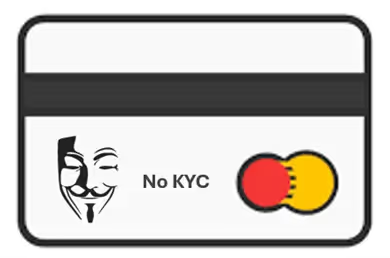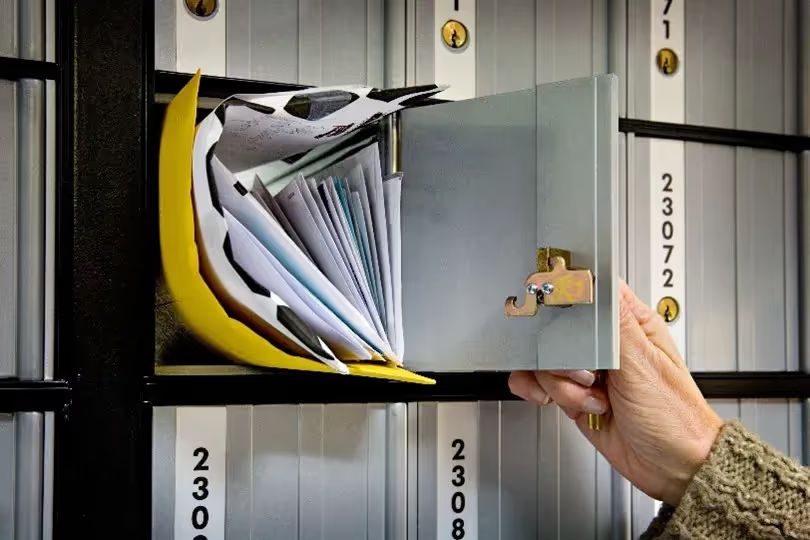Rabbit Holes For Privacy Focussed Bitcoiners

In this article:
The world of geopolitics is growing increasingly extreme as the failed fiat monetary experiment continues to unwind, leaving governments scrambling to delay the inevitable collapse.
If it weren’t for Bitcoin, things would look pretty bleak right now.

But is Bitcoin enough to protect your interests in an increasingly hostile world? As the fiat Ponzi implodes, both governments and the general public are becoming more dangerous and unpredictable.
Yes, Bitcoin can protect your wealth and guarantee your ability to transact freely, but you can and should go further to protect yourself. In a world where tensions are this high, you should seriously consider steps to safeguard your privacy. Doing so will reduce your chances of becoming a target and ensure an uneventful transition to a world on a Bitcoin standard.

This week, let’s take a look at some Bitcoin-adjacent ‘rabbit holes’ you can explore to improve your overall privacy and keep prying eyes from knowing too much about you.
Privacy Gadgets
One of the simplest ways to improve your privacy is to purchase some inexpensive but effective gadgets that require practically no technical know-how. You could order any of these online today and improve your privacy with just a few clicks.
Webcam Covers, Mic Blockers & Privacy Screens
These three gadgets are easy upgrades you can make to your existing hardware for less than $50 and they all are cheap and easy to find online:

The devices are pretty self-explanatory. Webcam covers conceal the lenses on your laptop or phone to stop malicious actors from spying on you. Mic blockers prevent attackers from listening through your device’s microphone. Privacy screens help prevent people from seeing what you’re doing on your device unless they lean directly over your shoulder.
Simple, cheap, and effective tools that any Bitcoiner can add to their setup instantly.
Data Blockers / USB Condoms
One method attackers use to try and steal your personal data is known as ‘Juice Jacking’. This is where hackers tamper with public USB charging stations in places like hotels, airports and cafes to steal data or install malware on connected devices.
When you plug your phone or tablet in to charge at one of these compromised charging stations, the USB cable's data pins can be exploited to access personal information, passwords, or even lock the device.

A USB data blocker protects you from this threat by allowing only power to pass through, effectively cutting the connection between the two data wires. You can charge your device on the go, confident that even a compromised USB station won’t access your data.
Encrypted USB and External Hard Drives
USB and external hard drives are useful tools for storing, backing up and moving data but their portability makes them easy items to misplace and are a valuable but lightweight target for opportunistic thieves. If you leave any sensitive information on these devices and they go missing, it can leave you vulnerable.
A great way to easily mitigate some of these risks is to use USB and external hard drives that are encrypted with a PIN. This means that even if your device falls into the wrong hands, your data remains protected.

More advanced models can also offer features that will erase all the data on the drive if there are too many failed attempts to access it.
Faraday Bags
Faraday bags are portable enclosures made from conductive materials that act as a faraday cage to protect electronic devices from electromagnetic fields and radio frequency signals.

Placing devices like smartphones, laptops, or key fobs inside a faraday bag blocks them from sending or receiving signals including cellular, RFID, Wi-Fi and GPS, protecting them from location tracking or remote hacking techniques like relay attacks. It will also protect any device inside from being damaged by electromagnetic pulses (EMPs) from solar flares or nuclear events.

A faraday cage is somewhere you can place any device and know with certainty it can’t be tracked, accessed remotely or damaged via an EMP and are great places to store things like hardware wallets, key fobs, important hard drives, or any device you want to keep extra safe.
Privacy Tools for Online Shopping
Online shopping is extremely convenient, but it’s also a privacy nightmare. The more online retailers you interact with, the more centralised databases your sensitive personal information gets recorded on.
This means it’s just a matter of time before one of these retailers gets breached and your personal information falls into the wrong hands.

Thankfully, there are some tools you can use to protect yourself that should appeal to any privacy-conscious Bitcoiner.
Disposable / Temporary Email Addresses
Sometimes, you might want to create an account for an online retailer or service that you don’t particularly trust or don’t plan on using regularly.
In this scenario, instead of exposing your primary email address, you can use various services that will provide you with a short-lived email account that you can use for sign-ups, order confirmations, and promotional subscriptions instead. You can receive a temporary email address instantly, use it to receive verification links, shipping details or receipts and simply discard it when you’re done.

Doing this will minimise email tracking by retailers, targeted ads, data breaches and phishing attempts tied to your personal info.
Non-KYC Bitcoin Debit Cards
A very useful tool for Bitcoiners is to make use of Non-KYC, Bitcoin backed debit cards.
Wherever possible we would always advocate that you try and work with retailers who do accept Bitcoin directly, but until the world catches up to sound money, this isn’t always possible.
When that’s the case, non-KYC debit cards can be a great option to allow you to spend Bitcoin even at retailers that don’t accept it yet. These cards allow you to fund a standard debit card with Bitcoin and spend anywhere that accepts Mastercard. The best bit? You can acquire and use these cards without giving up any personally identifiable information.

Yes, it’s a workaround for now, but still a useful tool for someone living on a Bitcoin standard. Just remember, these services are custodial, never leave large amounts on them, just use them for casual spending money.
P.O Boxes
One challenge you face when online shopping is having to give up your home address when providing shipping details. How else would you get your items delivered?
The problem is this starts linking your personal information and purchases to your home address. Not ideal if you’re trying to protect your privacy. If for example you order a Bitcoin hardware wallet to your home address, you’re leaving digital breadcrumbs that could be used by others to determine it’s highly likely you’re holding some Bitcoin.
A good solution to this problem is using rented P.O Boxes to receive your mail. Yes, you will typically need to provide I.D to someone like the USPS (USA) or The Royal Mail (UK) to set it up, but this is preferable to giving your home address to every online merchant you interact with.

It might be a little more inconvenient to fetch your mail, but it’s worth it for the privacy gains.
Protecting Your Mobile Privacy
There are now more mobile phones on the planet than humans, and each of them can act as a sophisticated piece of spyware capable of tracking and monitoring almost every aspect of your life.

Thankfully, there are steps you can take to protect your privacy when using a mobile device.
Non-KYC E-Sims
Non-KYC sim cards don’t require any personal information and are a great way to improve your privacy. They allow you to access mobile networks all over the world but without having to worry about your location or data being linked to you personally, and also act as an effective defence against SIM swap attacks.

You will also find that a lot of providers accept payment via Bitcoin’s lightning network which means even the purchase of your non-KYC e-sim isn’t linked to your personal bank account.
Open-Source Mobile Operating Systems
Most people’s phones today are running either Apple iOS or Google Android operating systems. The trouble is, both contain closed source or non-auditable components. This means that it’s impossible to be certain that they don’t contain backdoors that could be used for monitoring and surveillance.
Fortunately, there are alternative operating systems that are fully open-source, auditable and built with privacy in mind that put the user back in control. For example, Graphene OS, a hardened fork of Android, completely strips out Google Play Services (a known attack vector for surveillance and tracking) and replaces it with open-source user-controlled alternatives instead.

By ditching the tech giants and opting for secure open-source alternatives you can get access to more granular app permissions, enhanced security features, and you won’t be running an OS with built-in telemetry that ‘phones home’ to Google and Apple to share detailed information about you.
Privacy Focused Messaging Apps
Most people have already moved on from SMS based messaging services and are now using a mixture of DMs on social media and online messaging apps instead. Carefully choosing which apps you use is crucial if you want to protect your privacy.
It should go without saying that DMs on social media platforms are not private. The companies operating those platforms can access them. But you should also consider that while most messaging apps like WhatsApp and Signal are end-to-end encrypted (E2EE), they are not necessarily equal when it comes to protecting your privacy.
Let’s take a quick look at a comparison between an app like Signal and WhatsApp:

Clearly, there is a big difference between the two despite them feeling almost identical when you use them. There are a growing number of privacy focused messaging apps becoming available, each with their own set of trade-offs, but the biggest challenge you will face is getting your friends and family to start using them with you.
Online Privacy
Almost everything you do online is tracked, recorded and added to a profile that probably defines your habits, desires and behaviour more intimately than you could. Your data is harvested, sold, and used to develop detailed profiles about you that can be used to sell you things, influence your political views, adjust your behaviour or farm your attention. In many ways, these tools can be used to program you.
Understanding this is your first line of defence, but you can go further by protecting your online privacy and stop these detailed profiles being created in the first place:
Open-Source VPNs
Using a virtual private network (VPN) creates a secure, encrypted connection between your device and the internet, protecting your privacy in two main ways:
- Encryption: All your data (like web pages, emails, or videos) is encrypted so that only the intended recipient can unscramble it. This stops your internet service provider (ISP), hackers on public Wi-Fi, or governments from reading your traffic if they decide to intercept it.
- IP Address Masking: Your real IP (a unique identifier showing your location and device) is replaced with the VPN's IP. This means any websites you visit, and any trackers see the VPN's address instead of yours, so they can't link activities back to you.

There are countless VPNs available on the market, and some are more secure and trustworthy than others. Ideally you should seek out services that are decentralised and don’t rely on centralised servers and have open-source code that is freely available for anyone to inspect and verify.
Privacy Browsers
A small but simple change you can make to your online browsing habits is to ditch the most popular browsers like Safari or Chrome for some of the more private and secure browsers available.

Alternative browsers, like Brave, Firefox, and DuckDuckGo, are designed to prioritize user anonymity over data harvesting, and give you stronger defences. They offer features like automatic ad and tracker blocking, which halts invasive scripts from profiling your habits, enforce HTTPS Everywhere for encrypted connections, and even offer faster page load speeds due to the reduced script bloat and minimal telemetry.
These browsers don’t offer you perfect privacy, they should always be used alongside other tools like VPNs, but as upgrades go, they are perhaps the easiest one to make.
The Onion Router (Tor)
The Onion Router (Tor) is a free tool first developed by the U.S. Navy that helps keep your online activities private by using multiple layers of encryption to hide your IP address and prevent traffic analysis by any observers.

The Tor browser works by connecting you to three random relays and negotiates temporary encryption keys with each, encrypting your data in layers, like an onion. Each relay your data passes through can peel off and decrypt one layer of this encrypted onion but none can ever connect your IP address to the website you’re visiting.
- The first (Entry) relay you interact with knows your IP address and the destination of the next relay in the chain, but cannot see the final destination (website) you are visiting.
- The second relay only knows about the first relay and the destination of the next, but doesn’t know the original source (your IP), or the final destination (the website you’re visiting).
- The third (exit) relay can decrypt the last layer and can see the destination (website) being visited, but crucially doesn’t know the IP that requested it.
By encrypting and routing data in this way Tor allows you to browse the internet without being spied on, get around blocked sites in censored countries like the UK, safely use public Wi-Fi, and access hidden ‘.onion’ websites.

Explore Privacy Rabbit Holes – The Bitcoin Way
If you’re taking Bitcoin self-custody seriously then you should also be taking your privacy seriously. It’s not wise to leave breadcrumbs everywhere when the online world is becoming increasingly hostile and adversarial.
The best way to protect yourself is to fly under the radar and adopt tools that protect you from mass surveillance and stop your data falling into the hands of big tech, big brother or malicious hackers. You might not be able to disappear quite as spectacularly as Satoshi did, but you can certainly prevent yourself from being an easy target.

When you’re ready to start taking your privacy as seriously as you take your security, we’d love to help you explore a few more rabbit holes. Just book a free 30-minute consultation and we can start helping you get to grips with all the tools you need.
Added bonus – we won’t KYC you!
